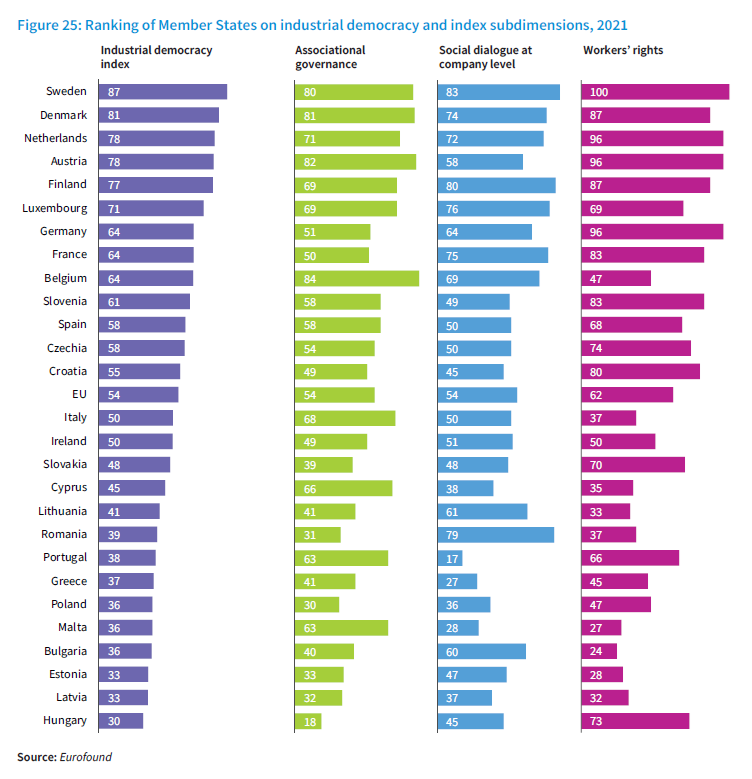Significant decline in workers’ rights in Malta

A significant decline in workers’ rights in Malta over the past 15 years has resulted in a worrying drop in industrial democracy which has plunged to the fourth place from bottom.
This trend emerged from a Eurofound report titled Living and Working in Europe 2023 Yearbook which gauged major developments affecting employment and the quality of life across the bloc.
Eurofound defines the term industrial democracy as “the rights of employers and employees to participate autonomously and collectively in the decision that defines the employment relationship”.
It transpires that Malta’s overall score in the industrial democracy index was of 36, just six points above Hungary which placed last and just ahead of Bulgaria, Estonia and Latvia. In contrast the Scandinavian countries ranked top with Sweden and Denmark scoring 87 and 81 respectively.
Such index was compiled by measuring three indicators – associational governance (the organisational strength of trade unions and employer organisations and their power to influence economic and social policy), social dialogue at company level and workers’ rights.
While Malta scored comparatively high in associational governance with 63 points (Sweden placed top with 80 and Hungary bottom with 18), it performed poorly in terms of social dialogue at company level placing third from bottom, and in the workers’ rights index finished in penultimate position only ahead of Bulgaria.
In this respect, the report noted that Malta was among those member states where industrial democracy had declined most since 2008 – namely Greece, Hungary, Romania and Slovenia.

On the other hand States with the most marked improvement were Czechia, France, Lithuania, Poland and Slovakia. Such improvement was attributed to a stronger involvement in social dialogue at company level.
Looking ahead, prospects for an improvement in Malta look rather grim as according to this report it falls in the category of those countries where industrial democracy is drifting away from the average – the situation getting worse over time. Apart from Malta, the only other country with such a negative outlook is Hungary.
Though the report does not go into the reason for the negative trend in Malta over the last 15 years, this trend coincided with the influx of thousands of third country nationals who are predominantly employed in low-income jobs. Moreover, these workers are seldomly unionised and hence more often than not are prone to exploitation. Construction, accommodation, catering and the entertainment sectors are among those which have become increasingly reliant on TCNs
From a wider perspective the report notes that benefits of high employment are not translating into palpable improvements in the daily lives of all Europeans, in large part due to the continued rise in the cost of living. With earnings from work insufficient to keep pace with inflation, some are forced to forego the staples of a basic standard of living in these prosperous times. And something as fundamental as affordable housing for all Europeans seems to have become an unattainable dream for many, including Malta.
